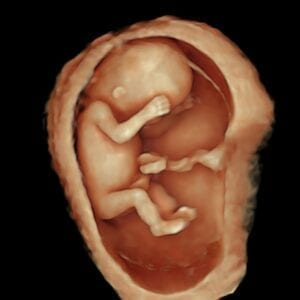Summary of NHS and RCOG recommendations:
The importance of prenatal care
The purpose of prenatal care is to identify, diagnose, treat, or prevent anomalies which may affect the health of the mother or the baby. Screening schedules have been carefully developed through evidence and expertise to ensure that the well-being of the pregnancy is effectively monitored throughout the whole gestational period. For this reason, it is incredibly important that you maintain contact with your maternity team and attend your prenatal care appointments. We understand that these are troubling and uncertain times, when attending a clinic may pose a level of anxiety, but please remember that prenatal care is essential in supporting a healthy pregnancy and reducing complications and it is strongly advised to attend appointments where they have been scheduled.
General advice
If you are asymptomatic and in good health, with no complications from previous pregnancies we recommended that you contact your maternity team if you are due for a routine scan. It is likely the appointment will still be carried out, but timings may change to accommodate staffing requirements as clinics are doing everything possible to protect the safety of their patients and staff. Alternatively, if you are between appointments, you should wait to hear back from your maternity team regarding your appointment. If you have any concerns or are uncertain about your scans, contact your maternity team. They will be able to provide you with advice specific to you, regarding your appointment times and any changes to these, if relevant.
Furthermore, it is important that you also contact your maternity team if you are concerned about your baby’s well-being or movements. Naturally, you may have concerns about entering a healthcare facility during this time, but any concerns you have regarding your pregnancy should be vocalised to your care team. If you are required to attend hospital, we want to reassure you that maternity units are doing everything they can to minimise the spread of COVID-19 and ensuring the well-being of all their patients and staff. Some of these changes include restrictions on numbers of visitors. This means that we unfortunately have to ask that if you are to attend a prenatal scan, that you attend alone if possible. This includes being asked not to bring your children with you.
Lastly, in the instance that your maternity team believes that there may be a need to reduce the number of face-to-face prenatal appointments, this will be communicated to you clearly. This will only happen taking into account evidence on the safe number of visits required to ensure a healthy pregnancy.
Attending prenatal appointments if I am self-isolating
If you are self-isolating, it is important that you follow government guidance and stay indoors, avoiding contact with others for 14 days. However, if you have an appointment scheduled during this time, it is important that you contact your maternity team to let them know that you are currently in self-isolation for suspected or confirmed COVID-19. Most likely they will reschedule your appointment until your isolation is over, however if it is decided that the appointment is urgently needed, arrangements will be made to ensure you are seen while the safety and well-being of others is also protected. If this is the case, it is important that you follow instructions from your maternity team.
Just to re-iterate, we completely understand that this is a stressful and unsettling time. The most important thing you can do is to keep regular contact with your maternity team and ensure that you do attend your appointments where they have been scheduled, if you are well. Prenatal care has been developed to reduce complications and support your pregnancy, and even during challenging times, this is still the case.
Please be aware that COVID-19 is an emerging, rapidly evolving situation and we recommend to check listed below references for the latest public health updates:
References
https://www.rcog.org.uk/globalassets/documents/guidelines/2020-04-17-coronavirus-covid-19-infection-in-pregnancy.pdf
https://www.unicef.org/coronavirus/navigating-pregnancy-during-coronavirus-disease-covid-19-pandemic
https://www.euro.who.int/en/data-and-evidence/evidence-informed-policy-making/publications/pre2009/what-is-the-efficacyeffectiveness-of-antenatal-care
https://www.thh.nhs.uk/services/women_babies/COVID-19_infection_pregnancy.php
https://www.rcog.org.uk/coronavirus-pregnancy

 Estimate the Gestational Age (GA) or the Estimated Due Date (EDD)
Estimate the Gestational Age (GA) or the Estimated Due Date (EDD) Twins in a womb at about 8 weeks GA via a standard 2D transabdominal scan. Note that both embryos are about the size of a blueberry at this stage!
Twins in a womb at about 8 weeks GA via a standard 2D transabdominal scan. Note that both embryos are about the size of a blueberry at this stage! A transvaginal (TVS) 3D image of twins in the womb at about 9 weeks GA
A transvaginal (TVS) 3D image of twins in the womb at about 9 weeks GA A model we have at the clinic to demonstrate the development of twins in the womb at later stages in the pregnancy.
A model we have at the clinic to demonstrate the development of twins in the womb at later stages in the pregnancy.







